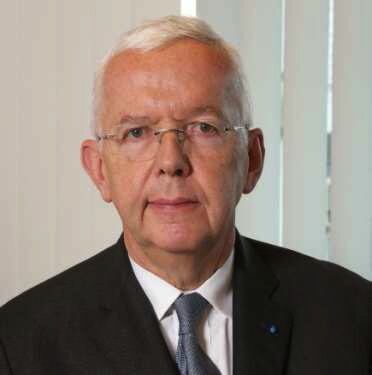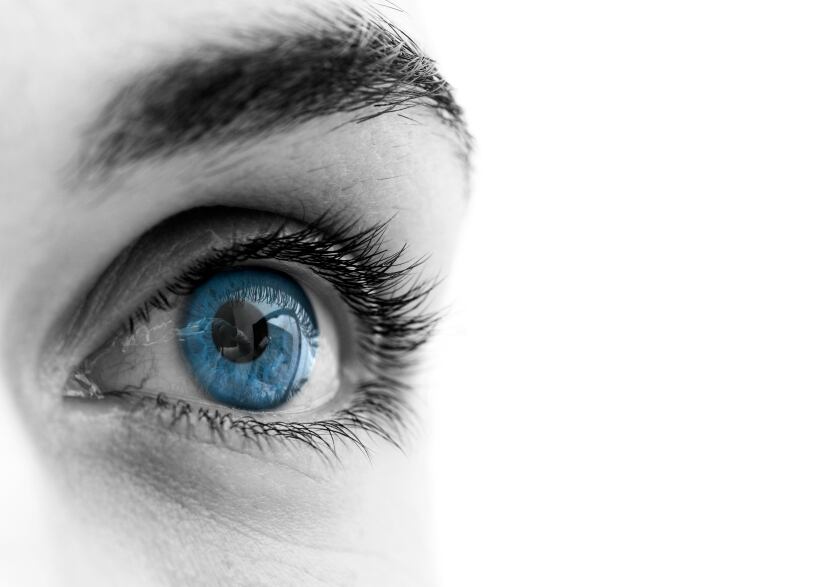Loïc Armand, of L’Oréal and president of the Cosmetics Europe industry association, is one voice with plenty to say on these issues.

With 34 years with L’Oréal under his belt in various leadership roles, he now acts as advisor to the L’Oréal Group president, and has been sitting as the head of Cosmetics Europe - a body that represents the interests of the largest beauty and personal care market in the world - for several terms.
I sat down with Armand at the recent Cosmetics Europe Annual Conference (CEAC), to dig behind the headlines with an industry veteran.
“We are not perfect; we can improve,” Armand acknowledges, speaking of the beauty industry as a whole. “And we are dedicated and committed to improve in many fields.”
High standards: top focus
I meet Armand in the lobby of the Brussels hotel which is hosting the CEAC, an industry knowledge-sharing and networking event.
Organisers of the CEAC have set up the interview with Armand, and as we sit down together, he hands me a printed Word document of the answers to the preapproved questions I had sent over in advance of the meeting.
Armand is not one to waste time; he has something specific and pressing he wants to address, and the faff and limitations of public relations handling is of no interest to him. We ignore the printed answers and get stuck into a proper chat.
“Let’s talk about your question of how my role in L’Oréal has influenced how I’ve acted as president of Cosmetics Europe,” he says.
“I’ve been influenced by the high standards - ethical and quality standards - of my company, and I project the same kind of high standards in my job as president of Cosmetics Europe.
“I’m very proud of what we are doing as an industry. I’m convinced that we are doing good. We are helping people to live better, to look good and feel better. We are trying to do, as much as possible, a good job in helping people.”
Armand has found his theme: the efforts, he believes, of the cosmetics industry are impressive - yet the industry is repeatedly singled out by public awareness campaigns and regulatory bodies as needing to do more and be more.
Despite being responsive - even at times proactive - to the concerns raised by civil society around the environment, animal welfare and product safety, Armand reckons the beauty industry is unfairly attacked in these areas.
“People are demanding, and we want to answer this pressure by positive action. But I want to be judged on facts, I ask people to be fair in their judgement,” he explains.
“Yes we can be better, yes we are committed to be better - but let’s at least recognise what we are doing.”
Excessive scrutiny?

Two areas where we have particularly seen what Armand considers to be unfair levels of scrutiny are in the issues of microplastics and animal testing.
In both of these issues, the beauty industry contributes only a small share of the problem - Armand puts cosmetics’ share of microplastic marine litter at about 1% of the total, while by far the largest potential contributors to microplastics emissions are from the breakdown of bigger plastics. For example, fibres from clothes, car tyres or plastic pellets.
It is, he says, a similar story with animal testing. The contribution there from beauty and personal care is similarly small.
“I’m a bit puzzled by the fact that in both cases, we used to represent an extremely small amount of the impact of each issue,” he says. “What I would like is to be recognised as an industry that is making the maximum effort in taking account of these challenges.”
Despite its small share of the overall problem in the case of both marine litter and animal testing, Armand asserts that the industry response to both has been admirable.
Ahead of its commitment to remove microbeads from wash-off products by 2020, the industry has managed so far to eliminate 96.7% of them from relevant products.
Similarly, following the 2013 ban on animal testing for cosmetics in Europe, we can now say that no animals are killed for the purpose of cosmetics safety in Europe.
“I would like us to be recognised for what we’re doing. I’m not asking people to thank us, to say thank you to the cosmetics industry. I just require some recognition of what we are trying to do.”
Why the beauty industry bears the brunt
The question then arises: why is the beauty industry singled out on these social and environmental issues, when its contribution to them is so small? What is it about beauty and personal care that makes it an easy target for such campaigns and regulation? I put this to Armand.
“Maybe because we are too easily targeted. Our brands rely a lot on the trust and confidence of our consumers, and of our reputation. And for some organisations, it’s a kind of easy target. So they say, well okay, ‘we’ll attack the cosmetics industry, it’s not important’.”
He suggests that, despite being having a strong positive impact on people’s wellbeing generally (he points to Cosmetics Europe’s Consumer Insights 2017 report, that suggests around 72% of consumers think beauty and personal care improves their quality of life), there is a popular idea that cosmetics are unnecessary, non-essential items.
Armand puts forward with some force the idea that to combat this kind of attitude, the industry needs to do more to assert that it is an important consumer goods player, that consumers do rely on it.
“I think we have to be better, to work more, in explaining the benefits of our product. And if our benefits are recognised - and I think they are recognised by society, but I think they have to be recognised by politicians - and if they were, we would be respected more.
“The only way not to be an easy target is to try to explain that we are bringing benefits to the consumer, to the society and to the world.”
It helps, I suggest, that we’re beginning to see a widespread rejection in the industry of some of the more harmful messages: for example, we are moving away from anti-ageing, to a more positive story of healthy and happy ageing.
“We can say that,” acknowledges Armand.
Helpful gaze: positive change

While the constant, high-level scrutiny must be a bit wearing, surely it can be an agent of positive change for the industry, I suggest.
Indeed, although possibly excessive in its attacks and unfair in its singling out of cosmetics, the scrutiny has driven the industry to real success in the issues mentioned, for example, of animal testing alternatives and of reducing microplastic usage.
“We don’t need it every day, but I accept that this scrutiny helped us understand better the need for change and for better behaviour,” agrees Armand.
“It’s a bit chicken-and-egg, but it’s quite clear that the pressure we got in the case of animal testing helped us to understand that there was no sustainable future for the industry without taking into account - seriously - the needs of civil society.
“We can’t say at the same time that we are a beautiful industry, helping people to feel better, and at the same time, being an industry that’s killing animals. I accept the fact.”
Evidence-based, fact-based scrutiny welcome
Ultimately, then, we need to see a balance, Armand seems to be saying. The industry expert never once suggests the scrutiny - from the public, from consumers, from regulators, from non-profits - should stop.
However, he makes a passionate plea for a more balanced appraisal of the industry by these groups. He asks, too, that the efforts and successes of the industry are recognised.
The industry welcomes scrutiny, says Armand, “as long as it’s based on evidence, as long as it’s based on fact.”
He concludes: “I don’t want to be attacked day after day without taking into account the facts.
“I’m not just rejecting everything, not at all: we really want to do it better. But at least, from time to time, just tell us that we are trying our best.”
